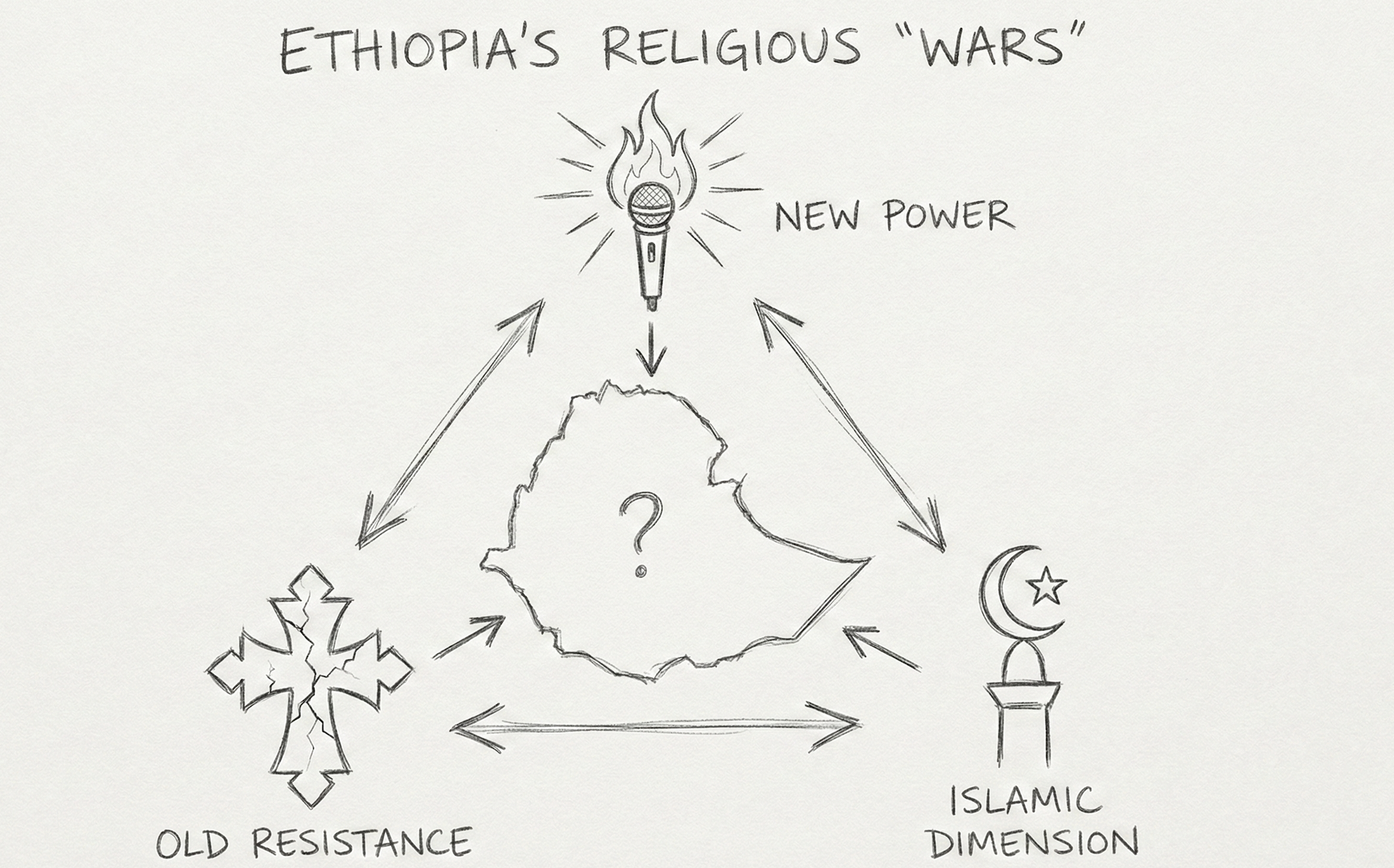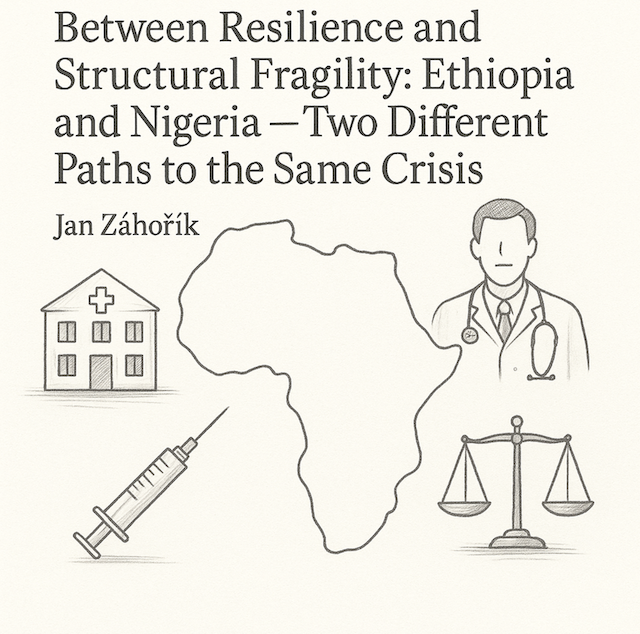Czech government has adopted its new Strategy for Africa in 2021, the first of its kind since the birth of the country in 1993. In this article, we will take a look at historical trajectories of Czech(oslovak)-African relations before we’ll get to current relations between the Czech Republic and Africa.
The communist Czechoslovakia (1948-1989) belonged to the most active members of the Socialist camp when it comes to Africa-related activities. The beginnings in the 1950s were not easy also due to the fact that most of the African continent was still under the colonial rule.

The Ethiopian Herald, Nov 13, 1966: Czechoslovak President Novotný arrives tomorrow. Emperor Haile Selassie to greet him in Addis Ababa, highlighting the era's growing international relations.
The first really significant Czechoslovak “penetration” of Africa was the massive supply of arms and other material to Nasser's Egypt in 1955. The Soviet Union, not wanting to provoke the Western countries, preferred to turn the Egyptian request for arms on Czechoslovakia. This is the first really significant Czechoslovak footprint in Africa, which was soon followed up. From 1956 onwards, courtship with Ethiopia took place, our embassy was established and in 1959 the Ethiopian Emperor Haile Selassie arrived in Czechoslovakia. Originally it was not planned, Haile Selassie was going to Moscow, but as a kind of diplomatic by-product it was possible to arrange a visit to Prague, which in the end was very successful. A number of agreements were signed, which very quickly translated into mutual cooperation materialised, for example, in the opening of a joint farm on Ethiopian territory between Kombolcha and Dessié and in a number of other projects. We even know from archival sources that as early as 1956, Emperor Haile Selassie asked Czechoslovakia for help in building up Ethiopia's intelligence services. Ethiopia during Haile Selassie’s regime was America's main ally in the region in the post-war period, the Americans were the guarantors of the country's security, supplied it with weapons and set up a military radio communication station in the north of Ethiopia. This clearly shows the various paradoxes of the Cold War.
In the late 1950s and early 1960s a major turning point occurred as a number of new independent states were created. Besides Ghana, being the first Sub-Saharan country gaining independence, we should primarily mention Guinea as a pioneer, whose independence was pushed through by Amadou Sékou Touré. Guinea needed to fill a political and economic vacuum after the departure of the French, without being able to say that Sékou Touré was a Marxist-Leninist. There was also Mali, with independence since 1960, and its leader Modibo Keïta, on the other hand, was a committed Marxist-Leninist. Both the Guineans and the Malians flew to Prague in large numbers demanding arms and ammunition but more and more tensions arose due to different expectations.
In the first half of the 1960s, the era of "naive" Czechoslovak engagement in Africa came to an end. Until then, it was sincerely thought that a genuine socialism could be built in the newly emerging countries through industry, medicine, education and other achievements. But then it became clear that the real, day-to-day politics was multilayered, and that each of the actors had its own pragmatic approach. Initially idyllic relations with countries like Guinea and Mali are beginning to unravel. At that time, foreign trade enterprises (FIEs) were being formed, entities such as Motokov, Strojexport, Pragoexport, etc., which had a monopoly on the export and import of certain products, but at the same time were able to supply various units, such as factories for the production of tyres or bullets for machine guns and a variety of other things.
It also entailed the building up of a network of experts who were sent to Africa, various engineers, consultants, doctors, surveyors and others who actually participated in this system. It meant that this stay in Africa enabled them to build up a network of clients with whom deals were struck to build this refinery, that hydroelectric plant, that factory for whatever, and in return for which minerals or some other commodity were demanded, starting with bananas and I don't know what else. This was the alpha and omega of Czechoslovak involvement in Africa, which suddenly ended in 1989.

Czechoslovakia's Relations with Africa: This map shows key priority and educational exchange countries during the Cold War, not a comprehensive overview of all relations.
In principle, from Czechoslovakia's point of view, the "Third World" countries were clearly categorised. The priority category was countries that subscribed to Marxism-Leninism or at least some form of socialism. The second category was the countries "not entirely distinct", i.e. they neither subscribed to socialism, but at the same time were not puppets of, for example, Paris. A classic example is Mobutu Sese Seko's very resource-rich Congo, which was indeed a Western ally, but that did not prevent it from going to China or North Korea and trading with Czechoslovakia. And then there were the third countries, that is, the pure puppets of the former colonial capitals, which include in particular francophone countries like Gabon, Senegal and others. If we take priority countries like Sudan under Ja'far an-Numajri, Egypt under Jamal Abd an-Nasser, Algeria, Gaddafi's Libya and others, they defined themselves as socialist countries, at the same time all of them suppressed domestic communists to a greater or lesser extent. In the Eastern Bloc, a sort of equation was created between socialism and Marxism-Leninism, so it was automatically assumed that if a regime defined itself as socialist, it would have no problem with Marxism-Leninism.
A significant part of the Cold War conflict took place in the sphere of education, so that many states offered various scholarships or these were also offered through multilateral institutions such as the UN. Czechoslovakia played a very important role in transfer of knowledge and education of thousands of students from the Global South. Among them, there were not only students coming from countries where it would logically be expected, such as Ethiopia, Angola, Mozambique or Guinea, but also countries like Chad, Niger, Côte d'Ivoire, Senegal, those bastions of Francophonie that had little or nothing to do with socialism. In fact, the very logical idea was - and today it is practised especially by China - to educate future clients in the necessary fields, all kinds of engineering, mathematics, physics, mining technology.
When students arrived, they had to learn Czech or Slovak for the first year, depending on where they were placed, and then they went to study together with our students and other international students. However, the transfer of Marxism-Leninism did not work very well in this respect. The students usually considered communist ideology as superfluous ballast.
On the other hand, the educational system and the system of scholarships had a great impact also on the image of Czechoslovakia and later on the Czech Republic across Africa. Smaller thousands of African and Arab students passed through Czechoslovakia, but the vision that the Czech Republic (or Slovakia) would benefit from superior ties with many of the countries of Global South did not materialize. After 1989, Africa ceased to be a priority of the Czech (and Slovak) foreign policy. How the Czech Republic after 1993 approached Africa and what position Africa plays in current Czech foreign policy will be a matter of the second part of this essay.
.png)








